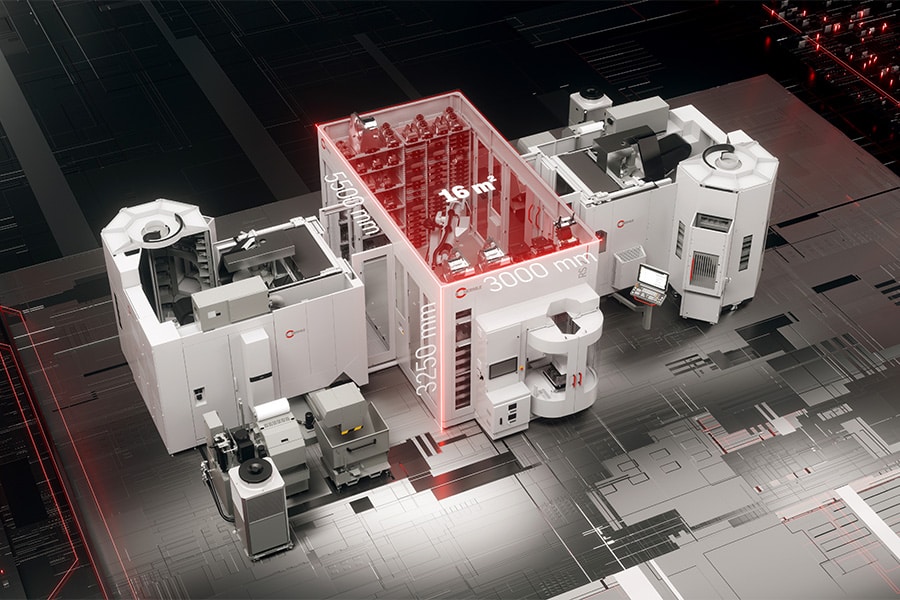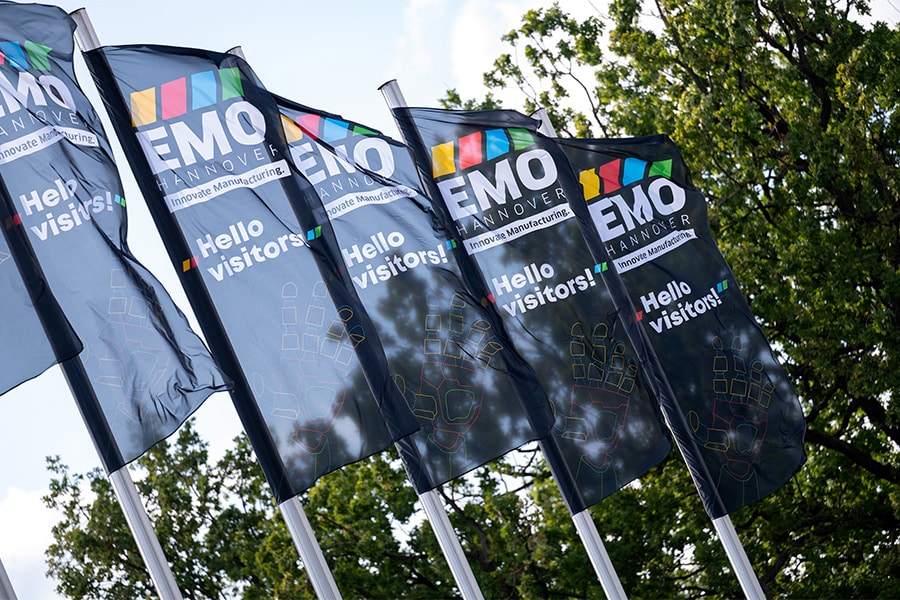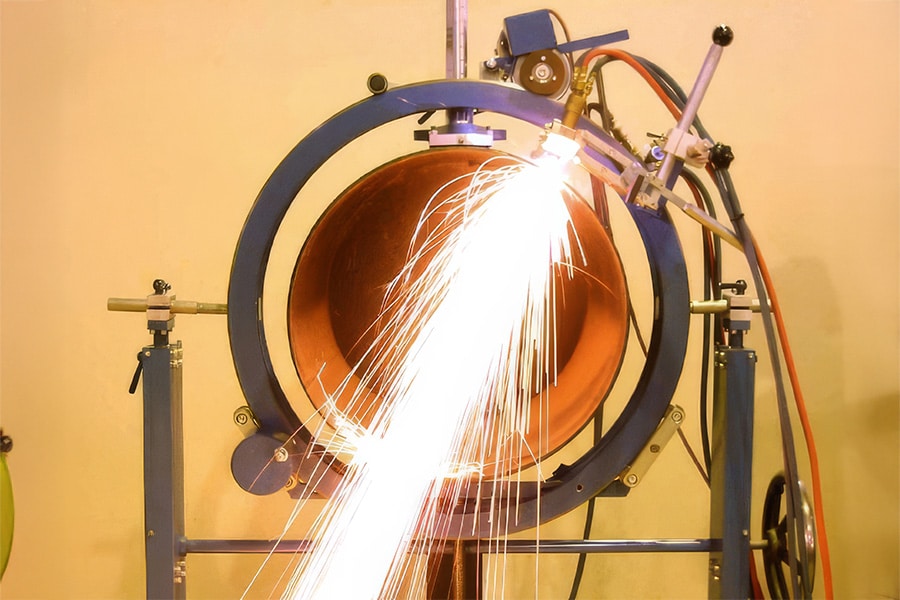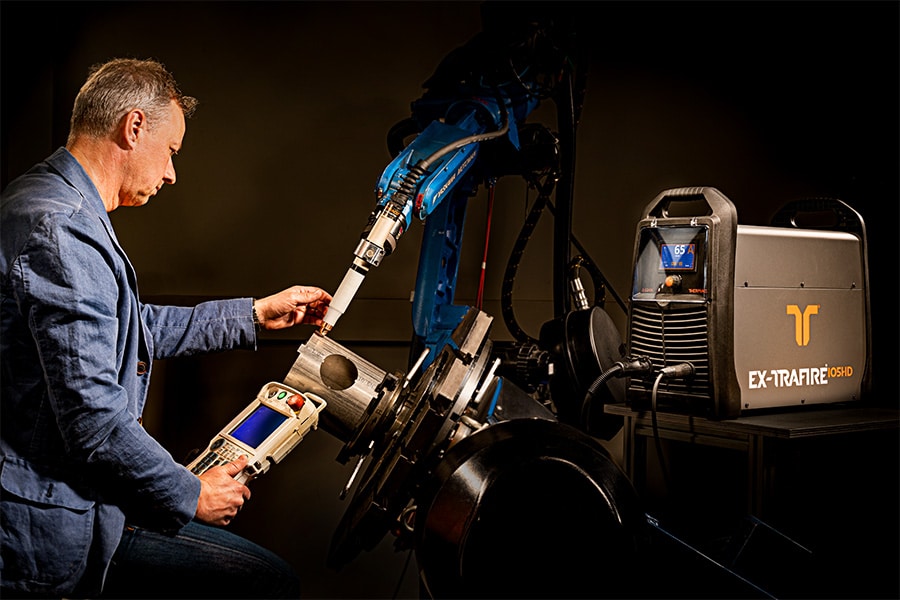
Surface treatment crucial to meet higher demands
Every metal product on the market today, from tiny electronic parts to the blades of wind turbines, will have undergone a surface treatment for aesthetic reasons, to make it more durable, to add additional properties .... Without surface treatment, many utilitarian objects would not even exist or function. Despite the importance of proper surface treatment, they are still too often seen by metalworkers as the last step and not involved in the preliminary process. "A missed opportunity," thinks Veerle Fincken, program manager of the VOM. A conversation about the added value the surface treatment industry can create.
Text: Valérie Couplez Image: iStock and VOM
Why is surface treatment so important?
"What would our lives be like without cars? Without metal structures? Without kitchen and garden tools, multimedia, cell phones, musical instruments, sophisticated hospital equipment that saves lives? Each of these products would not have the same properties without proper surface treatment. Trade association VOM is therefore particularly proud of its members who work every day to support our comfort and prosperity. In turn, we try to help them by promoting surface treatment. After all, it is a very complex world. That is why VOM informs specifiers, clients, building owners, architects, engineering firms and property developers about the possibilities of the technology."

How affordable is surface treatment still in a world where we are moving toward lot size one?
"Lot size one will only be possible in an Industry 4.0 environment where digitization has taken hold and workers are guided by robots and cobots. We are certainly not that far yet. And in terms of digitization and automation, we as a sector itself still have some way to go. There are already a lot of tools available, also to move forward step by step in a digital transformation but this is still happening too little. Job coaters today, however, can still work in series, although we do note that they are getting smaller in numbers and that there are increasingly specific requirements attached to them. Producers want products that are faster and cheaper to make and, on top of that, last longer. These are three elements that are difficult to combine. VOM and its members stand for quality and longevity. In other words, sustainable products. But that comes at a price. However, it will pay off in the long run to pay a higher price today and choose quality than to opt for a coating system that fails early and causes damage."
Can you clarify that?
"Surface treatment itself is really only a fraction of the price of the whole product. I try to illustrate with an example. A medium-sized compressor (2 m x 1.5 m x 1.5 m) costs about 25,000 euros. The sheet metal itself will be responsible for 1,000 euros of that. An inferior coating system for painting that sheet metal then comes to 200 euros, or 0.72% of the price. In doing so, one then runs the risk that the material begins to show degradation and the compressor is taken off the rental market after about three years, for example. Then that's hard-earned money. But those who opt for a two-layer system with improved exterior-resistant powder will pay 300 to 360 euros for their paintwork (1.44% of the cost price) but then significantly increase the lifespan. These smart choices are not made enough today.

Why is that?
"When a product is damaged or does not function properly, the finger is rather quickly pointed at the surface treatment company. After all, he is the last step in the chain, a chain which, incidentally, is not always very transparent, and therefore the first point of contact if something goes wrong. But actually, our companies should be involved in the design of a product from the very beginning, from the drawing board. There is a lot of knowledge and craftsmanship among our members that metalworkers can learn from in order to create better products. The industry is also constantly evolving. Only if every step in the chain is involved in the design can we arrive at very high quality products. And those will always have their place in the market." υ
What are the main evolutions within surface treatment?
"These are usually not groundbreaking innovations, but on a technical level we see a lot of process improvements. Environmental legislation has been one of the main drivers in the continued professionalization of our sector. Surface finishers are aware of the dangers associated with the chemical products they work with. All possible measures are taken to eliminate risks to the health of employees and to the safety of the environment are taken, evaluated and maintained. Therefore, the most important innovations are in business models that allow them to work in a more sustainable, environmentally friendly and efficient way. That is also where the importance of quality labels comes into play, which can demonstrate that the processes at our companies run in the most optimal way."

And what about Covid-19? Was the impact felt heavily?
"If the big OEMs go into lockdown, the whole supply chain is negatively affected. You can't get away from that. But according to our polls, our SMEs have held up well. In the first few weeks of the lockdown, there were supply chain problems and labor shortages. However, both issues recovered fairly quickly. It was the cue for many surface finishers to think about their business and how best to steer it through the crisis. Filling order books and keeping staff working safely are now priorities, and a lot of effort is being put into that. Even more reason to be proud of our members."



